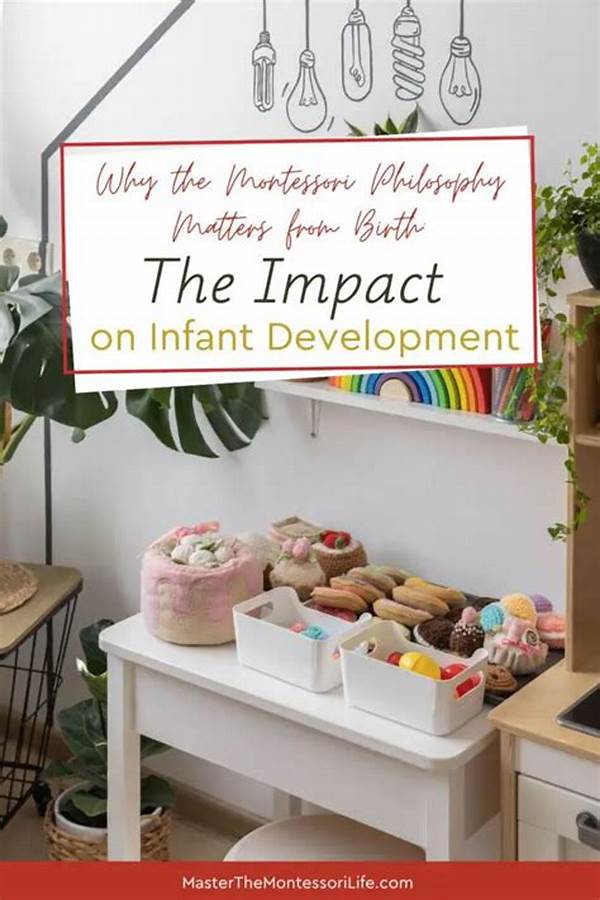In the world of education, there are various teaching methodologies designed to foster growth, creativity, and critical thinking among children. One approach that stands out for its distinctiveness and effectiveness is the Montessori method. At the heart of this methodology is the concept of independence, an element that’s pivotal for the development of various cognitive and practical skills. But why independence matters in Montessori approach is a question that many parents and educators often ponder. Here’s a deep dive into why this concept is so crucial and how it creatively unfolds the unique selling points of the Montessori way.
Read More : Gentle Parenting And Montessori Similarities Explained
Picture this: a classroom where children freely choose activities that captivate their interest. They move around, engaging with educational materials while teachers observe, guide, and occasionally step in only when needed. This isn’t your typical classroom setup; it’s a Montessori classroom, where independence is not just encouraged, but celebrated. This unique setup stems from the understanding that children are naturally curious learners who, when given the freedom to explore, will develop a love for learning that extends beyond the classroom walls.
One key reason why independence matters in Montessori approach is because it nurtures self-discipline and responsibility. Children who learn to make choices, whether in selecting a task or resolving a minor conflict with peers, develop a strong sense of self-control and accountability. This early practice lays a foundation for becoming self-reliant adults who can navigate life’s challenges with confidence and poise.
Furthermore, independence in a Montessori setting fuels creativity and innovation. By allowing children to explore materials and concepts at their own pace, they are more inclined to think critically and out of the box. This freedom to explore extends to how they solve problems—often inventing creative solutions that structured learning environments might stifle. Encouraging diversity in thought and action, this approach is a stepping stone for future innovators and leaders.
The Science Behind Independent Learning
Research supports the emphasis on independence in Montessori education. Studies indicate that children in Montessori settings often excel academically, socially, and emotionally. But what is it about this approach that propels such success? The freedom and autonomy provided to children stimulate intrinsic motivation, a powerful driver for lifelong learning.
Having this sense of control over their educational journey, children build self-esteem and confidence. They learn to trust their instincts and express their individuality without fear of judgement. This holistic development is essential for preparing them not just for academic success, but for the dynamics of real-world interactions.
While the immediate academic benefits of the Montessori method are noteworthy, the long-term effects of fostering independence are equally significant. As parents and educators, it’s important to recognize and support environments that don’t just value rote learning but celebrate the individual learner’s journey.
Creating a learning space where independence flourishes doesn’t only yield intelligent minds but heartens empathetic individuals who appreciate diversity and embrace challenges. Such qualities are indispensable in today’s fast-paced, multicultural world and explain robustly why independence matters in Montessori approach.
—
Structure and Strategies: Implementing Montessori Independence
Creating an environment conducive to independent learning in Montessori is both an art and a science, demanding careful planning and strategic execution. To develop a robust understanding, let us explore how these methodologies can be effectively implemented.
In a Montessori classroom, strategies to encourage independence are embedded in the environment and interactions. Teachers or guides carefully prepare the space with activities and materials that intrigue and entice learners, subtly encouraging them to take ownership of their learning. This setup is meticulously designed to promote decision-making, problem-solving, and self-assessment—core skills that independence nurtures.
Crafting the Montessori Space
The environment in a Montessori classroom is not randomly assembled. It is deliberately crafted to foster independence, allowing children to freely choose and work on activities that pique their interest and match their developmental stage. Shelves are filled with thoughtfully selected materials, each offering a learning opportunity tailored to captivate young minds.
Furthermore, children are encouraged to take care of their surroundings, learning skills beyond academics that impart a sense of responsibility towards their community and environment. This holistic view of education is why independence matters in Montessori approach, as it nurtures well-rounded individuals.
—
The Magic of Encouraging Independence
When we delve into why independence matters in Montessori approach, it’s impossible to ignore the transformation it invites within young learners. Empowered by their freedom to explore, children don’t just absorb information—they integrate learning into their being, leading to profound and long-lasting growth.
In wrap-up, the emphasis that Montessori places on independence isn’t merely a pedagogic preference; it’s a foundational philosophy that aligns with how children naturally engage with the world. The benefits, undeniably evident, make a compelling case for why independence matters in Montessori approach, advocating for educators and parents to embrace this enlightening path.
—
Quick Insights: The Core of Montessori Independence
In conclusion, independence in Montessori is more than just a teaching tool—it’s a transformational philosophy that enriches children’s learning experience, proving essential in today’s ever-evolving global landscape.
